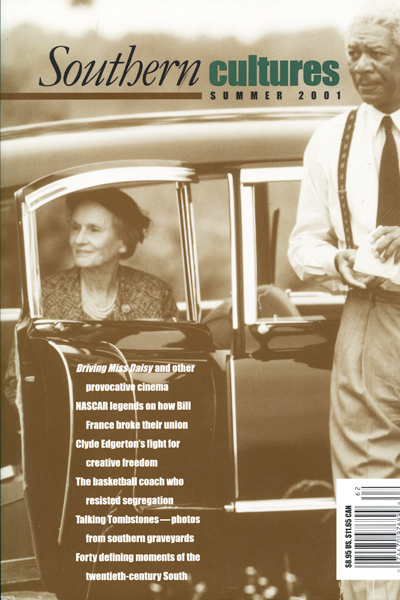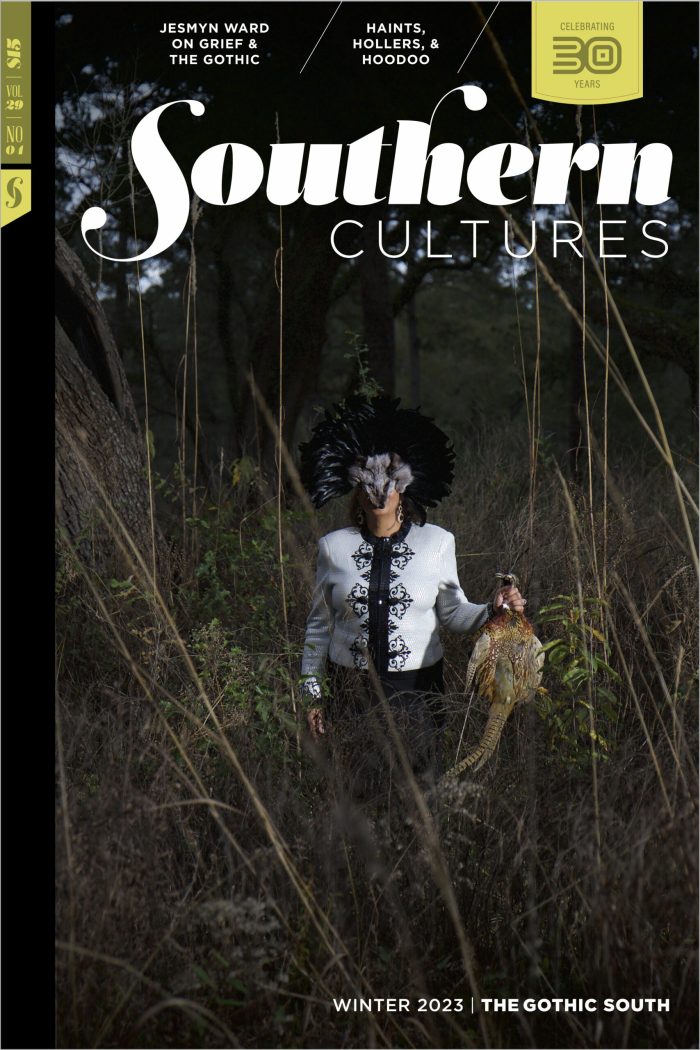by Randolph N. Waller
“What’s next — a Charles Manson retrospective?” From time to time our readers send us pleasant reminders that there’s no reason for this publication to take itself at all seriously. For instance, we thought that the forum we’ve been offering in our “Letters to the Editors” might lend itself to thoughtful discussions of essays we’ve »
by Harry L. Watson
“Who could be freer than one of these stock-car racers moving easily and gloriously between the glamour of moonshining and the thrill of roaring engines on dirt tracks, with plenty of hard living, hard partying, and wild women at every stage?” “The power of the master must be absolute to render the submission of the »
by Daniel S. Pierce
“‘I have a pistol and I know how to use it. I’ve used it before.'” “Gentlemen, I won’t be dictated to by the union.” Six-foot-five, 240-pound Big Bill France loosened his tie, removed his glasses, and proceeded to put the “fear of God” into his workers. Before he had “this union stuffed down [his] throat,” »
by Charlie Curtis
“Freezing time is a tricky science.” “Death suffuses all these pictures.” So says former fashion photographer Charlie Curtis, who has been working late on his time machine again. Readers of Southern Cultures will remember his “Signs of the South” photographic essay, which we published in our Summer 2000 issue. But unlike “Signs of the South,” »
by Eliza R. L. McGraw
“‘Now, Miss Daisy, somebody done bomb that temple back yonder, and you know it.'” The release of the film Driving Miss Daisy in 1989 made American moviegoers aware of the ongoing presence of southern Jewishness. 1 Alfred Uhry wrote the film’s screenplay from his 1987 autobiographically informed Pulitzer prize-winning play, the story of the relationship »
by George Hovis
“‘There were a lot of people who supported Clyde, but they just did not feel comfortable voicing any kind of support. There was this element of fear.'” During the spring of 1985, a battle raged in Buies Creek, North Carolina, on the campus of Campbell University, an affiliate of the State Baptist Convention of North »
by John B. McLendon,
Pamela Grundy
“One of the best ways to play the game is avoid confrontation. The next is to make the adversary ridiculous.” John B. McLendon Jr. was one of the most talented and influential basketball coaches of the twentieth century. He first made his mark at Durham’s North Carolina College, now North Carolina Central University, where he »
by Andrew Hudgins
“The subtle yet significant distance established between the speaker of this persona poem and its author asks us here at the beginning of the 21st century whether much has changed.” Under the flowering chinaberrywe parked and closed our eyesto the warm night, cool enough thenfor scent to claim our senses.
by John Shelton Reed
“It will surprise no one to see that the two big stories of the twentieth-century South are the transition from an agricultural to an urban society and the transformation effected by the Civil Rights movement.” Spring 2001’s South Polls unveiled our list of “The Twenty Most Influential Southerners of the Twentieth Century.” Mike Burg, president »
by Bryan Albin Giemza
“‘No shirt, no sleeves, no service. . . . No guns.'” My buddy Floyd is a native of Wisconsin. He’s half Minnesotan and half Wisconsinite, which makes him half German and half Norwegian and about six-feet nine-inches of Aryan genetics. It’s impossible not to attract attention when traveling with Floyd. I’m going to have a »





